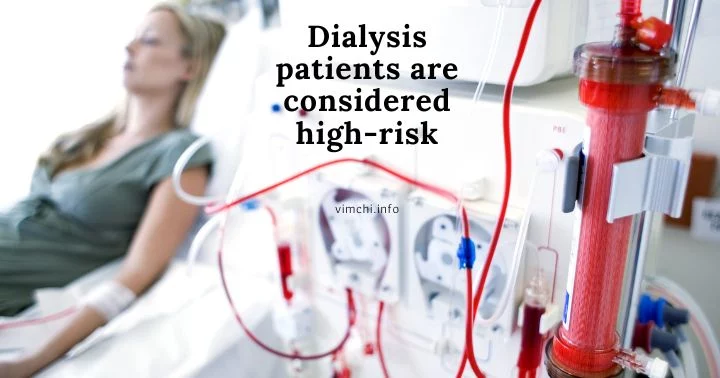Hello! Erliza Lee here. Today, let’s talk about life insurance for dialysis patients. This was one of the topics the other patients in the dialysis center were talking about last week.
I’m not undergoing dialysis but my mother does.
Dialysis patients are some of the most vulnerable people in our society.
Fortunately, there are life insurance companies that will help them get coverage for their medical expenses as well as other benefits.
However, finding such a company can be difficult — especially if you’re on dialysis or have been recently diagnosed with kidney disease.
How Hard It is to Get Life Insurance for Dialysis Patients?

This can be hard to get, especially if you’re in the Philippines. That’s why my siblings and I didn’t buy one for my mother.
Dialysis patients are considered high-risk, so if you’re a dialysis patient and think you might be eligible for life insurance, it’s important to understand what your options are.
There are some companies that will cover dialysis patients under certain circumstances.
The terms of these policies vary from one company to another and may not include all of the benefits offered by other types of life insurance policies (like whole life or universal).
But there are also some companies that won’t sell any type of policy at all to dialysis patients due to the large number who suffer from kidney disease and other chronic conditions that require regular medical treatment over an extended period.
Where life insurance companies are concerned, dialysis patients are considered to be high risk because of their health.
Life insurance companies are concerned about the health of dialysis patients. This is because dialysis can be very expensive, and it’s important to have life insurance coverage in case you need treatment or surgery that will cost a lot of money.
Even if you are not undergoing dialysis, you still need to consider life insurance. Here’s why.
If you’re worried about this issue, there are things you can do to protect yourself:
- Consider getting extra coverage through your employer or through an employee benefit plan (EBP) like PPOs and EPOs. These plans typically offer higher limits than standard plans do—so if your normal policy only provides $500k in death benefits, but this new one offers $1 million instead? You’ll be happy!
- Talk with your doctor about what kind of policy would work best for how much money they recommend having on hand before starting dialysis treatment so that no matter what happens down the line during the treatment itself (and beyond), these funds will still cover at least part of those costs until such time as another source comes up which could replace them entirely.”
The good news is that there are some companies that will cover such patients for smaller amounts and at greater premiums than other people — though the exact terms will vary from one company to another.
You can find out which companies will cover you by doing a simple internet search, or by calling your insurance provider and asking them directly.
If you already have a policy in place, your doctor may be able to help determine if it would be beneficial for you to add another type of coverage.
Once you’ve found one that fits what you need, make sure the policy includes annual updates so that it stays current with all changes in law affecting dialysis patients of all ages who require ongoing treatment during their lifetime.
Importance of Understanding Your Policy

The importance of knowing your policy inside and out cannot be underestimated; if you don’t read every single word on every single line, you could end up with a policy that’s not valid or that appears to be valid but actually isn’t.
It’s also important to make sure you understand what is covered and what is not covered by the insurance company. You can do this by asking questions about each item in detail so that there are no surprises later on when filing claims or requesting reimbursement for expenses related to dialysis treatment.
Patients who choose long-term care insurance policies from an independent broker must thoroughly read the policy because they will need these types of policies in order for them to qualify for government assistance programs such as Medicaid coverage – which means there may be additional fees associated with obtaining these policies through us versus another company altogether!
Additionally, it’s important to find an insurance company that allows you the opportunity to take care of your policy online.
One of the benefits of online applications is that they are easier to complete than paper ones.
You can complete your application from a computer or mobile device, and you don’t have to mail anything in—you simply submit it online.
In addition, there’s no need for you to wait at home while someone else completes your application on their schedule.
Online applications are also faster than paper ones because they allow you to skip over steps that may take time away from your life during an emergency situation.
For example, if you had forgotten something important in an earlier step of the process (like uploading medical records), then this would delay things even further because now there’s more work involved before they’re even done!
Have the Application Reviewed by a Nurse or Someone Who Knows the Complexities of Dialysis
You should also make sure that your application is reviewed by either a nurse or by someone who understands the intricacies of dialysis and how it can differ from one patient to another.
You may want to find out if there are any other services available in your area, such as social workers or case managers, who can assist with finding resources at home.
Life insurance companies are not required to provide coverage for kidney dialysis patients, and many don’t.
In fact, many insurers will refuse to offer life insurance policies to people who are undergoing dialysis treatment.
Some companies do offer coverage for their dialysis patients at higher premiums and smaller amounts than what they would charge for healthy individuals without such an illness or condition.
This means that you may have trouble finding a company that will cover your needs. However, there are some companies out there that will offer you a policy with no strings attached—just pay the premium!
It’s an Important Matter!
In conclusion, life insurance for dialysis patients is an important matter. Though it’s not always easy to get the kind of life insurance for dialysis patients that you need, there are some companies that specialize in this type of policy.
Do you have cystic fibrosis? Here’s how you can get life insurance. And if you have life insurance but wish to cancel it, here’s how.

Speak Now ... Or Forever Hold Your Peace